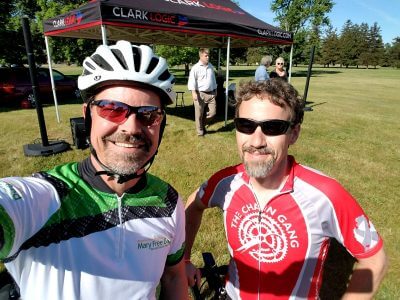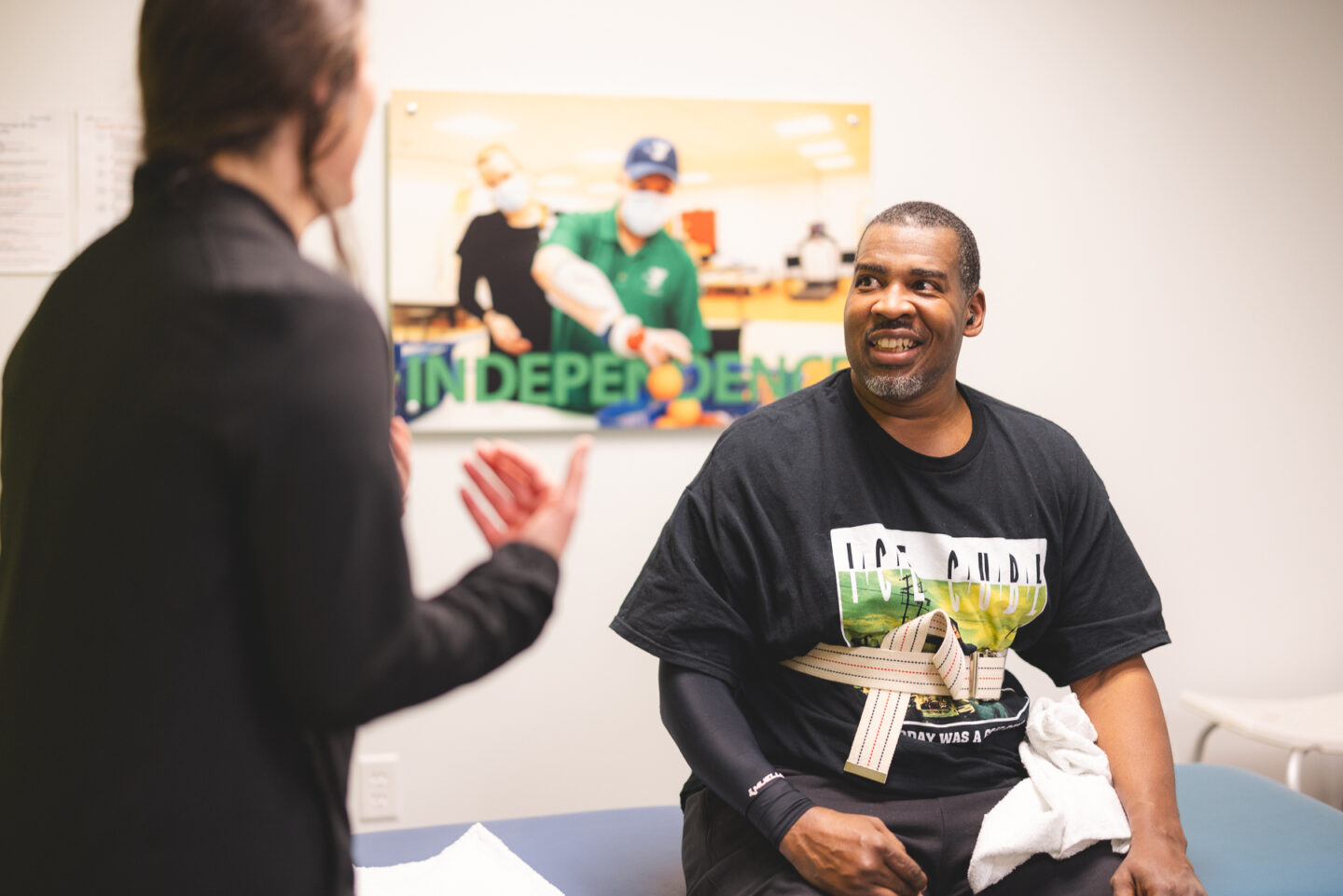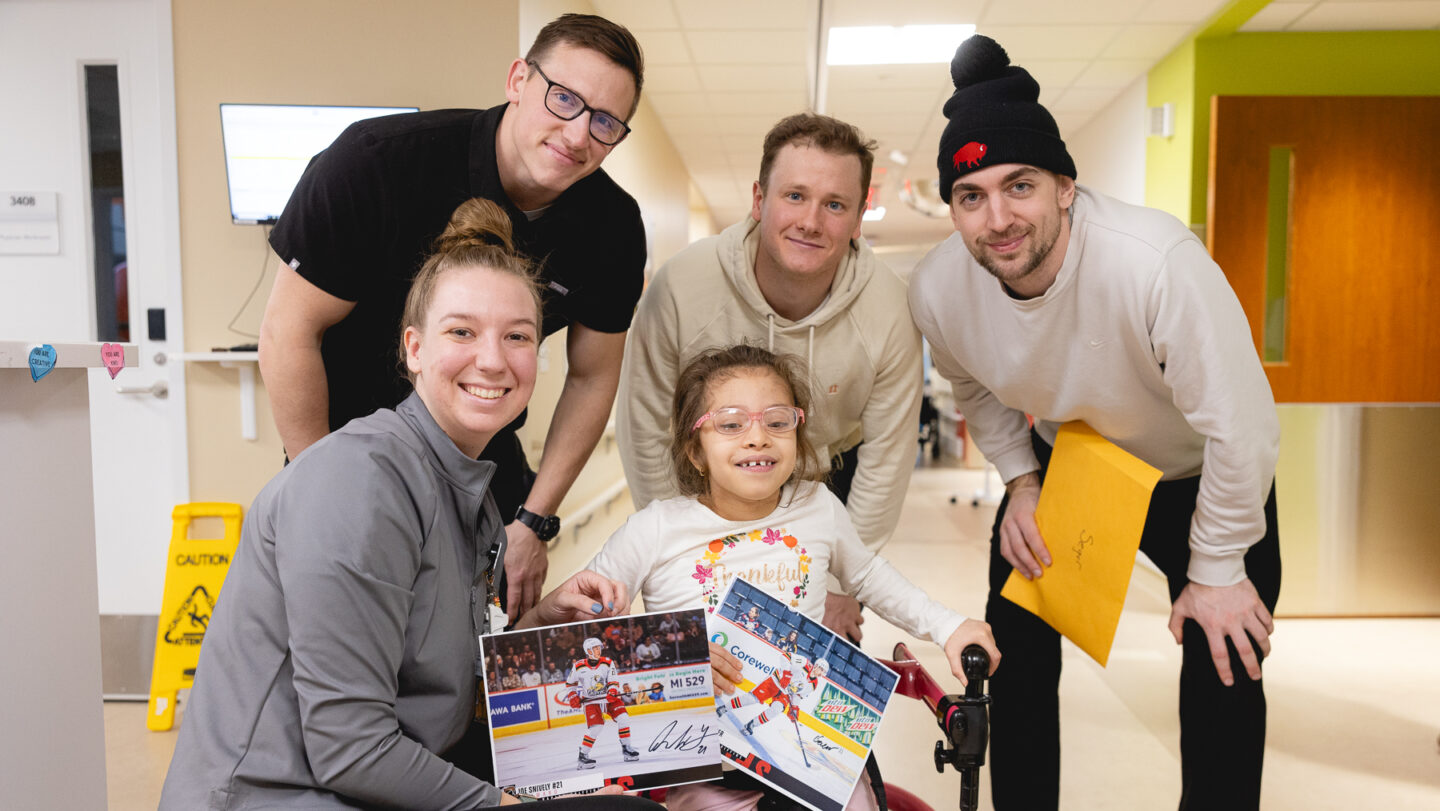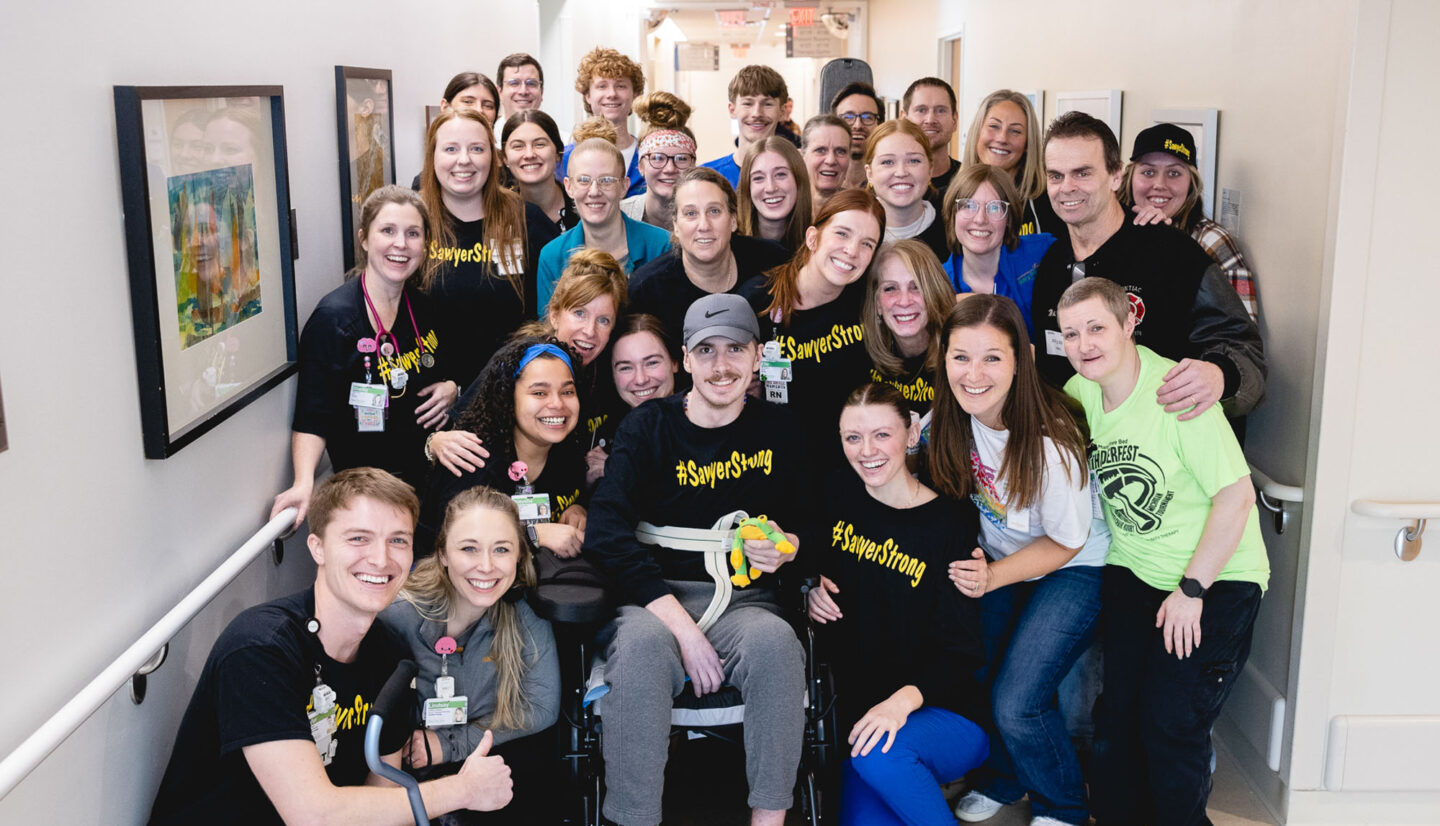Posted on June 22, 2017
Road to recovery comes ‘full circle’ for Kalamazoo bike crash survivor
It’s been nearly a year since Paul Gobble graduated from Mary Free Bed. A survivor of the June 7, 2016 bicycle collision in Kalamazoo County that killed five others, Paul has been recovering from a head injury, multiple spinal cord injuries and a fractured fibula.
“When I left Mary Free Bed, I was wearing three different braces: one on my leg, one on my back and one on my neck,” Paul said. “As doctors released me from them one at a time over a few months, I began to feel more and more like myself.”
An avid cyclist who was riding with his Chain Gang club when they were struck by a pickup truck, Paul says his recovery will come full circle when he participates in the Gran Fondo cycling event on Saturday in Grand Rapids.
 “I’ve never done an 80-mile ride before, so I’m a little nervous about it,” Paul said. “But what better way to tackle the challenge than to do it alongside your very own Mary Free Bed physical therapist? I just can’t say enough about how thankful I am for Mary Free Bed.”
“I’ve never done an 80-mile ride before, so I’m a little nervous about it,” Paul said. “But what better way to tackle the challenge than to do it alongside your very own Mary Free Bed physical therapist? I just can’t say enough about how thankful I am for Mary Free Bed.”
Paul will ride with Mary Free Bed’s team in the popular annual event sponsored by Michigan State University’s College of Human Medicine. He was invited by Sean Murphy, the primary physical therapist on Paul’s inpatient team and an avid cyclist himself.
Sean accompanied Paul on the Chain Gang’s “Finish the Ride” memorial ride June 7 in Kalamazoo with the other survivors and community members (see photo above).
“Two weeks after the crash, while I was still in neck, back and leg braces, Sean took me to the Mary Free Bed parking lot and put me on a bike,” said Paul, whose therapy included riding a recumbent bike and, eventually, a mountain bike, first with training wheels, then without. “It felt fabulous.”
The Mary Free Bed team will meet in the same parking lot before the Gran Fondo.
“It will mark completion of a full circle for me,” Paul said. “I’m looking forward to that ride.”
Paul’s road to recovery has been a long one. Since graduating from the inpatient Brain Injury Program, he continued with rigorous physical, occupational, speech and pool therapy for several months before being cleared. He stays fit by visiting a gym three days a week and cycling. He also visits a counselor once a month, he said.
“I still have some aches and pains – daily reminders of the crash – but considering where I started, I feel pretty darn great,” said Paul, who is happy to be driving again, has returned to his photography business and loves “playing with my kids.”
His first true bike ride was in April, after the weather warmed and he replaced the bike destroyed in the crash. He called it “one of the happiest days.”
“I’ve been doing two 25- to 30-mile club rides a week since then,” he said. “It was pretty challenging physically for the first several rides, but now I’m riding stronger than I ever have.”
Paul has no memory of the crash, so he has no strong visceral reaction to cycling on the road. However, he has a message for cyclists and parents of cyclists: Always wear your helmet.
“Even if you are a very safe rider and you’re not riding hard for sport, you need a helmet in case someone else makes a mistake,” he said. “The day I was struck by a truck on the road while cycling, I did a lot of things right to keep me safe. But the only thing I did that really helped me, that saved my life, was to put on my helmet before I started to ride.”
Paul is thankful he has the opportunity to ride again. His plans to do a “century ride,” a one-day, 100-mile ride, later this summer. It’s a goal he intended for 2016.
“Well, things got in the way last year, and that didn’t happen,” he said. “So 2017 in going to be ‘The Year of the Century’ for me, and the 80-mile Gran Fondo is going to be a big step towards that goal.”
Sean is thrilled to be riding alongside his former patient.
“We often see patients and families at incredibly difficult, painful and stressful times in their lives,” he said. “They commonly just suffered serious life-changing injuries and have lots of questions about the future.
“We do our best to educate patients and families about the road to recovery, but in truth we often don’t know how things end up for them after they leave our care. It’s awesome to see Paul is back riding his bike again. It’s rewarding to think that his team here at Mary Free Bed played a role in that.”





